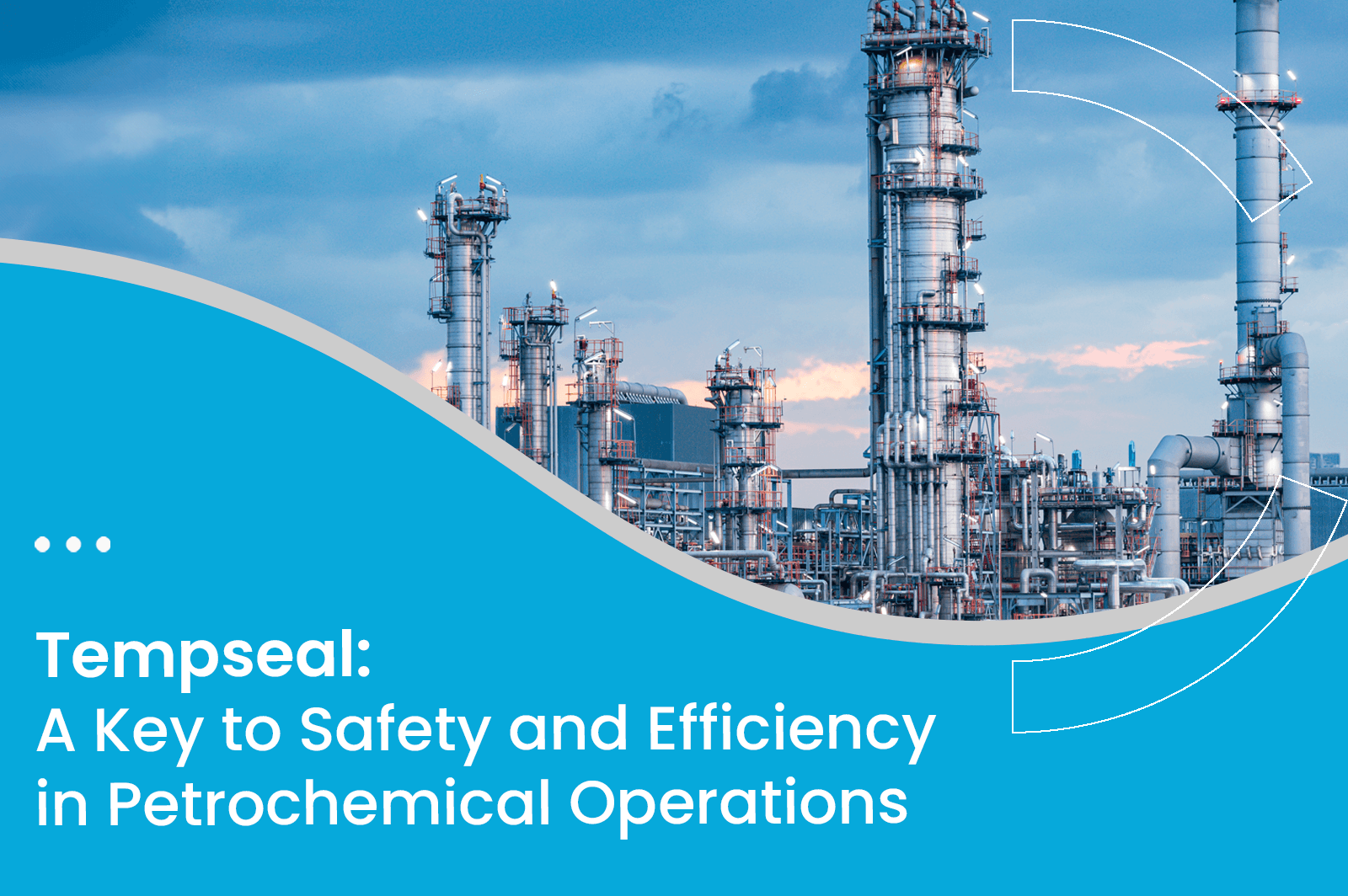Heat is not just distressing but one of the most fatal hazards in the petrochemical industry. Uncontrolled heat is a bigger problem in industrial settings than most realize—it compromises safety, reduces efficiency, and leads to unexpected shutdowns. Yet, it remains an often overlooked issue.
What if we told you that a simple coat of paint on your equipment could make it safer and more efficient? In this blog, we’ll explain how a simple coat of paint (heat insulation coating) can make your equipment safer and more efficient.
First, let us try to understand how heat makes petrochemical operations unsafe and inefficient.
How Does Heat Compromise Safety and Efficiency in Petrochemical Operations?
- Burn & Fire Hazards: Ever touched a piping-hot metal surface? Now imagine that at hundreds of degrees Celsius in a petrochemical plant. Uninsulated pipes, tanks, and reactors can cause severe burns to workers. Worse, overheated surfaces can spark fires or explosions if flammable gases are around.
- High Operational Costs: Uncontrolled heat leads to energy wastage and increases the dependency of equipment on fuel. This increases overall operational costs.
- Thermal Expansion & Equipment Stress: Continuous heating and cooling causes equipment materials to expand and contract. This leads to cracks, leaks, and eventually, system failure.
- Product Quality & VOC Emissions: Extreme heat affects chemical reactions. This can lead to inconsistent product quality. Moreover, high temperature leads to an increase in Volatile Organic Compounds (VOCs). Higher VOCs result in more air pollution and regulatory fines.
- Process Inefficiencies & Production Downtime. Excess heat can slow down or disrupt chemical reactions, affecting product quality. Unplanned shutdowns due to heat-related failures lead to production losses.
- Worker Safety: Excess heat creates a harsh working environment, posing health risks to workers, such as heatstroke, heat exhaustion, and skin burns. The harmful gases released due to unwanted chemical reactions at high temperatures pose respiratory hazards.
- Corrosion: Heat, combined with moisture trapped, accelerates corrosion, leading to pipe leaks, structural failures, and costly maintenance.
How Insulation Can Solve These Issues
We all learned about insulation in school—how it keeps homes warm in winter and cool in summer. However, in petrochemical plants, where heat is both necessary and a hazard, insulation is one of the most effective ways to control temperature, reduce risks, and improve efficiency.
Recap of What is Insulation:
Insulation is the process of restricting the transfer of heat from one surface to another. It uses materials that slow heat movement.
In industrial settings, insulation ensures that the high-temperature equipment retains its heat while keeping external surfaces cooler. This is especially crucial in petrochemical plants, where high heat is necessary for refining but dangerous if uncontrolled.
By applying insulation, we ensure stable operational temperatures, reduced energy loss, and improved safety. Let us go back to the problems we mentioned before and see how a simple insulation can solve them.
How Insulation Solves Key Petrochemical Challenges
- Fire & Explosion Prevention: Insulation reduces heat exposure, minimizing the chances of auto-ignition of flammable gases. Keeping equipment at safe operating temperatures lowers overheating and fire risks.
- Worker Safety & Comfort: Insulated surfaces prevent burn injuries. Additionally, a controlled environment reduces heat stress on workers, improving overall productivity.
- Energy Efficiency & Cost Savings: Proper insulation prevents excessive heat loss, reduces fuel consumption, and improves the efficiency of boilers, heat exchangers, and refining units.
- Thermal Stability & Equipment Protection: By maintaining consistent temperatures, insulation prevents expansion and contraction stress, which can cause cracks and leaks in pipelines and storage tanks.
- Better Product Quality & Emission Control: Insulation helps maintain ideal process temperatures, ensuring better product consistency, reducing VOC emissions, and helping plants meet environmental regulations.
While we’ve discussed how insulation addresses major challenges, one critical aspect we haven’t covered is corrosion. Corrosion protection requires more than just insulating material. Traditional insulation can trap moisture, accelerating corrosion and equipment degradation.
To effectively combat this, nano-insulating coatings like TempSeal provide a superior solution by preventing water ingress, reducing thermal stress, and ensuring long-term equipment durability with minimal maintenance downtime.
How TempSeal Thermal Insulation Coating Stands Out
TempSeal is a lightweight and durable nano-thermal insulation coating. This coating is built to provide protection even under extreme temperatures. This unique thermal insulation paint has nano-technology. This means it uses a nanostructured barrier to provide superior thermal protection at a microscopic level, unlike traditional coating that relies on bulk laters.
Key Benefits of TempSeal in Petrochemical Applications
- Eliminates moisture buildup and reduces the risk of corrosion.
- Proven result of energy savings offering excellent ROI
- Thin coating with maximum insulation
- Reliable insulation even in harsh operating conditions.
- Lesser downtime
Where TempSeal Can Be Applied in Petrochemical Applications:
TempSeal is ideal for high-temperature applications in petrochemical plants:
- Pipelines – Insulate hot and cold fluid transport
- Storage Tanks & Vessels – Prevent heat loss/gain
- Reactors & Heat Exchangers – Enhance process efficiency and longevity.
- Flare Stacks & Refinery Equipment – Withstand extreme heat exposure.
- LNG & Cryogenic Systems – Maintain low temperatures and prevent frost buildup.
Conclusion: TempSeal for safe and efficient petrochemical operations:
TempSeal is a thermal insulation coating, engineered to reduce risk and enhance operational performance. By providing superior thermal insulation, it prevents energy loses, reduces fire hazards and safeguards workers from hazardous temperature exposure.
Hence, it is considered an essential investment for any petrochemical facility.
Looking for a customised heat insulation paint for your petrochemical plant? Novota Thermotech is the exclusive manufacturer of TempSeal, an advanced nano thermal insulation coating made in India. Contact us today to learn more!


